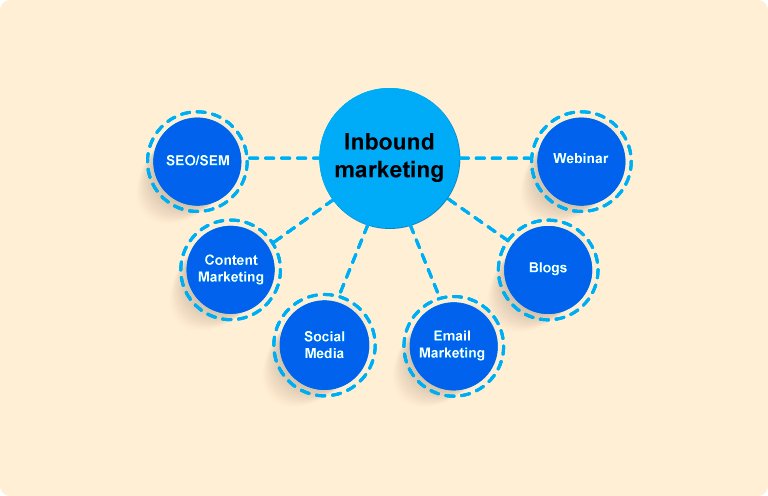Building a lasting partnership with an external SEO party

As CMO or marketing manager of an organization with 20 to 500 employees, you face unique challenges and opportunities. In this rapidly changing digital world, it is essential to optimize your online presence. That’s exactly where SEO plays a crucial role.
In this introduction, I will guide you through the importance of SEO for larger organizations and provide an overview of the challenges and opportunities of working with an SEO specialist.
The importance of an SEO partnership for larger organizations
You probably already know that SEO is important, but let’s look at why it matters specifically for a larger-sized organization. SEO is not just about improving keyword positions; it’s about building your brand, reaching your target audience and driving sustainable growth.
For a larger organization, with multiple products, services, or even locations, an effective SEO strategy can increase visibility and help you stay competitive in your market.
Challenges and opportunities of working with an SEO agency
Working with an SEO agency presents both challenges and opportunities. On the one hand, finding the right agency and integrating it with your internal teams can be a complex process. On the other hand, a well-chosen agency can give you access to expertise and technology that you may not have internally, and help you take your SEO efforts to the next level (in an efficient way).
I will guide you through these considerations so that you can make an informed decision that fits your organization’s needs and goals.
In the following sections, I’ll go into more detail on how to choose the right SEO agency, how to collaborate effectively, and how to measure and optimize results. My goal is to give you the insights and tools you need to create a successful partnership with an SEO agency, and in doing so, promote your organization’s online presence and growth.
Part 1: Choosing the right SEO agency
Choosing the right SEO agency is a crucial step in your digital marketing strategy. In this section, I guide you through understanding what you need, researching potential agencies, and the selection process.
Understanding what you need: defining your SEO goals
Before you even start looking for an agency, be clear about what you want to achieve. Want to increase the visibility of your brand? Drive more traffic to your website? Or improve conversion rates? By clearly defining your SEO goals, you can find an agency that matches your specific needs.

Don’t know what you’re looking for? Then let the SEO agency define it. A great first opportunity to show value.
Researching potential agencies: what to look out for
There are many SEO agencies, but not all of them are right for your organization. Look at their experience, specializations and previous successes. Ask yourself: do they have experience with companies of your size? Do they understand your industry? These considerations will help you narrow down the list of potential agencies.
The selection process: asking questions and checking references
Once you have a shortlist (I’d say up to 5) of agencies, it’s time to dig deeper. Ask questions about their approach, their team, and how they communicate. Ask for references and take the time to check them. This is your chance to understand how the agency works and whether it is a good match for your organization.
Choosing the right SEO agency is no small task, but with these guidelines you can make an informed decision that lays the foundation for a successful partnership. In the next few sections, I look at creating a partnership agreement and how to efficiently integrate the agency with your internal teams/contact.
Part 2: Drafting a cooperation agreement
Now that you’ve chosen the right SEO agency, it’s time to lay down the details of the collaboration. In this section, I will guide you through the process of creating a partnership agreement that lays the foundation for a successful and productive relationship.
What should be in a contract: the key to a successful partnership
A well-drafted contract is the backbone of any successful collaboration. It should clearly include the scope of work, responsibilities of both parties, timelines and delivery terms. By clearly establishing these things, you avoid misunderstandings and lay the groundwork for smooth cooperation.

If this does not include things that will come up later, communicate proactively and do not let a mosquito become an elephant by waiting (this is a common mistake during trajectories).
Communication and reporting: setting expectations
Regular communication is essential to the success of your collaboration with the SEO agency. Discuss how and when you will communicate and what you expect in terms of reporting. Want weekly updates? Monthly reports? By setting these expectations from the beginning, you ensure transparency and accountability. From these agreements, the practice can be molded to your liking.
Budget and payment: understanding cost and value
Understanding the agency’s cost structure and how it relates to the value delivered is critical. Discuss the budget, payment terms and any additional costs that may arise. By making this clear from the beginning, you avoid surprises and ensure an honest and transparent financial relationship.
Drafting a cooperation agreement is a careful process that requires attention and consultation. By taking the time to clearly define these important aspects of the partnership, you lay the foundation for a successful relationship with your external SEO partner. In the next part, I look at integrating the agency with your internal teams and how you can work together to achieve your SEO goals.
Part 3: Integrating the SEO agency with your internal teams
Integrating an external SEO agency with your internal teams is an essential step in creating an effective collaboration. In this section, I guide you in building a cohesive team, ensuring a smooth workflow, and overcoming potential challenges.
Collaboration and communication: building a cohesive team
Good collaboration begins with effective communication. Establish clear communication channels and protocols. Make sure everyone knows who is responsible for what. By fostering open and honest communication, you build a team that works together as a unit. The goal is to make the external SEO expert feel like an internal employee.

Sharing resources and information: ensuring a smooth workflow
Sharing resources and information is crucial to a smooth workflow. Make sure the agency has access to the tools, data and insights they need to do their job effectively. This also means establishing clear privacy and security guidelines to protect your business information.
This should all be accomplished in the start-up phase and can be prepared prior to the collaboration. This saves time during the process.
Tips for successful integration
Integrating an external SEO party is not always easy, and you may encounter challenges along the way. This can range from cultural differences to technical hurdles. Be proactive in identifying and addressing these challenges. Open dialogue and a willingness to work together are essential to overcoming these obstacles.
Integrating an SEO agency with your internal teams is a process that requires care and attention. By focusing on collaboration, communication, and resource sharing, you can build an effective and efficient team that works together to achieve your SEO goals.
Part 4: Measuring and evaluating agency performance
Measuring and evaluating the performance of the SEO agency you work with is essential to ensure that your investment pays off. In this section, I guide you in using KPIs and conducting regular evaluations.
Using KPIs to measure success
Key Performance Indicators (KPIs) are your compass to know if you are on the right track. Whether it’s increasing organic search results, improving click rate, or increasing conversion rates, setting and tracking the right KPIs helps you measure progress and understand where improvements are needed.

Note that it is important here not to start blindly focusing on KPIs that do not actually support the organizations’ goals (OKRs).
Regular evaluations and feedback: promoting continuous improvement
Successful collaboration requires ongoing alignment and growth. Regular reviews with the agency provide an opportunity to assess performance, provide feedback and work together to make improvements. By fostering a culture of openness and continuous improvement, you ensure a relationship that continues to evolve.
Part 5: Long-term cooperation and growth
Partnering with an SEO agency is not just a short-term investment. It’s about building a relationship that can contribute to the long-term growth of your organization. In this section, I will guide you in building a lasting relationship, growing together, and preparing for future trends in SEO. Ideally, you should work with the SEO specialist you chose for many years (I’m not just saying this because it’s beneficial to me :)).
The importance of trust and loyalty
Trust and loyalty are at the heart of a lasting relationship. Work on open communication, be honest about your expectations and needs, and show appreciation for hard work. A relationship built on trust and loyalty will stand the test of time and continue to grow.
Growing together: how an SEO agency can contribute to the growth of your organization
An SEO agency is not just a service provider; it can be a partner in the growth of your organization. By working together on common goals, sharing successes and learning from each other, you can create a synergy that goes beyond search engine optimization.
Future trends: preparing for the changing world of SEO
The world of SEO never stands still. New technologies, algorithms and consumer behavior require constant adaptation and innovation. Work closely with your SEO agency to stay on top of the latest trends and adjust your strategy accordingly.
Long-term collaboration and growth with an SEO agency requires commitment, trust and a willingness to learn and evolve together. By focusing on these aspects, you can build a relationship that not only supports your current SEO goals, but also contributes to the future growth and success of your organization.
Conclusion
Working with an SEO agency goes beyond improving search engine rankings. It’s about building a strategic partnership that can contribute to the growth of your organization. Trust, communication, measurement and continuous improvement are the keys to a successful and lasting relationship.
Next steps: how to continue and optimize collaboration
The journey does not stop here. Keep working on the relationship with your SEO agency, regularly evaluate performance and stay open to new ideas and innovations. The world of SEO is changing rapidly, and a proactive, collaborative approach will help you stay ahead.
I hope this guide has provided you with the insights and tools you need to build and maintain a successful partnership with an SEO agency. By applying the principles and practices I have discussed, you will be well positioned to take your SEO efforts to the next level and contribute to the long-term growth of your organization.






